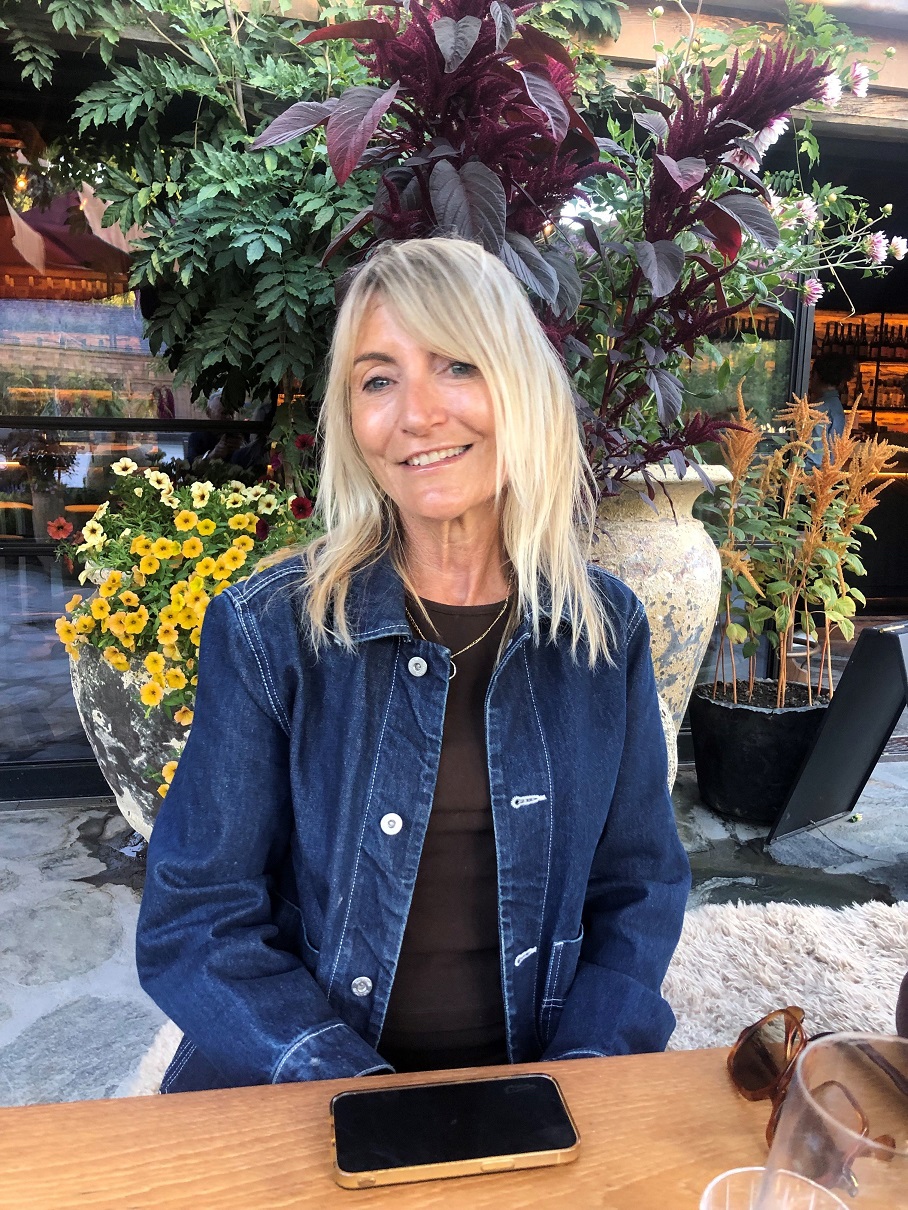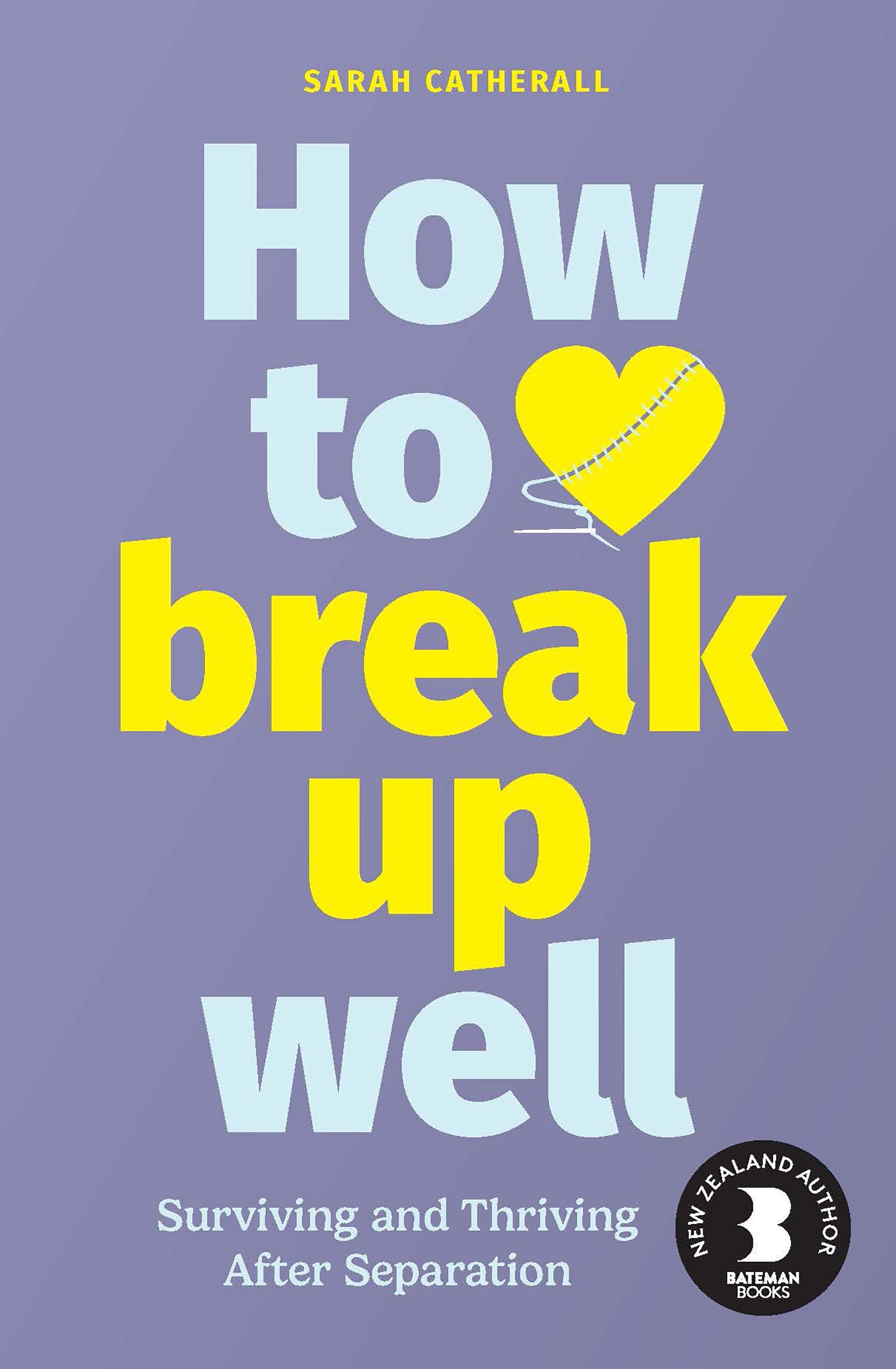
When my marriage ended, I scoured Amazon and bought a swathe of books about divorce and separation, mainly from the United States. My one bible was a book written by Erica Manfred, He’s History, You’re Not: Surviving Divorce After 40. In the United States, they call mid-life divorce the "gray divorce". It can be a liberating time or scary — depending on your approach.
In New Zealand, women typically divorce at the age of 43, which means marriages often break up around the time of a woman’s 40th birthday. Even though it wasn’t my choice to go, my marriage ended two months before I turned 40.
But breaking up in mid-life can be particularly rough, especially for women. If this was your first marriage or long-term relationship, you’ve probably spent many years together — a lot of Christmases, birthdays, summer holidays and children’s birthdays with him or her by your side. You’ve formed so many memories together, and then — bang! — it’s over.
Psychotherapist Sarah Brown — whose own marriage ended when she was in her early 50s — talks to me about this time of loss for women: we’re losing our childbearing ability, going through menopause or perimenopause, we’re losing our youth, and, if we’ve been out of the workforce, it’s even tougher to get back in.
She chats to me between sessions with clients.
"A break-up can be particularly hard when the separation or divorce is added to another life change or transition, such as if a woman is entering perimenopause or menopause. At that time, you’re facing the end of your child-producing ability, and there can be a sense of loss in that. There can be a sense of being of no use any more, of being slightly deficient or irrelevant."
Brown explains why women in mid-life might feel this double-whammy of loss: "You might have been rejected by your husband or partner, and then on top of this you might be feeling rejection from society, which shows young women in the media and in publicity and advertising. You see very few older women in film and TV roles and when they do appear, they are often portrayed as tired or unattractive."
Having said that, it is important to accept that it’s normal to grieve this loss, Brown says. Don’t beat yourself up. It takes time to cope with all these changes. You’ve had this person in your life for possibly many years, which means it will take even more time to reframe your future.
"You may have the added responsibility of having to earn and manage a mortgage, and not having a partner in any of those. Which can feel absolutely overwhelming and debilitating."
There is a silver lining, though, and it can be an exciting time as it is a new beginning.
"You can think: ‘This just a situation that I’m going through, but I’m still me, and I have agency to live my life.’ See this as an opportunity. Separate it from the personal."
You may flourish on your own, Brown says. And some women even choose not to repartner. "Some women at this life stage have their own money and assets, and they don’t want to bring a new man into this new world they’re creating."
I also like another perspective of breaking up in mid-life, which is posed by the American psychotherapist Abby Rodman in her book Without This Ring: A Woman’s Guide to Successfully Living Through and Beyond Midlife Divorce.

Rodman surveyed hundreds of women about their divorces for her book, and says very often divorcees rediscover passions they had shelved, friends they had ignored, and talents they had allowed to slide. When I read that, I think of my friend Tara who painted more artworks after her break-up — and was damned good at it. Actually, most of the women I know who have been through a mid-life breakup have found passion in past projects they had buried, or they’ve discovered new ones, or found successful careers.
Rodman writes: "A bad marriage corrupts your entire existence. Once you’ve extracted yourself from that, you have the opportunity to think about the things in your marriage that didn’t work for you. We all make sacrifices in marriage — and we should. But did you make really big ones that you can now revisit? Do you want to go back to school or become a writer or go to church every Sunday? Things maybe your ex-spouse wasn’t supportive of? In some ways it’s an opportunity for reinvention."
Pip tells me her mid-life divorce story. Now 50, she feels like her former 30-year-old self. She has rediscovered running and her passion for playing the guitar, and has reconnected with friends from her university days. While it wasn’t her choice to end the marriage, she has discovered that she had lost sight of who she was in her 20-year marriage, and has really never been happier. Her ex didn’t like her university friends, and he would leave the room when she played the guitar — something which didn’t really bother her, but playing the guitar gave her joy in the same way others like to do yoga or garden.
"I had no idea how much I had put aside my own dreams and passions in my marriage. It wasn’t necessarily his fault but just the way we were together."
Pip hasn’t looked back, and one of her questions now is whether she really wants to compromise again for a man.
"He’d have to be pretty amazing for me to go back there. I’ve got everything I need. I’m financially independent, and I’ve got my own career and my adult kids. Why would I interrupt this feeling of peace and my new zest for life for just someone?"
In her work, Kimberlee Sweeney tries to help women rediscover their old self. Divorce is up there with the death of a partner: many of us have struggled with a loss of identity in either, or both, of those circumstances. Sweeney is spot-on when she says: "Often someone in a 15- to 20-year relationship has lost sight of who they are. Who is the 40-year-old they are now, versus the 20-year-old they were when they met their partner?"
"You look across the couch while you’re watching Netflix, and you’re like ‘Is this it?’," Nikki Parkinson tells me. Her second relationship ended in mid-life. She sees this a lot: it’s a time when often women choose to create a new chapter, as the kids have left home or are preparing to start their own lives.
"Sometimes there isn’t a trigger, but it might be a sense of ‘I want more’ and I don’t know what more is. You don’t have this infinite time to do it."
Often, these feelings come out of nowhere for these women. "Nobody falls in love to think that, OK, in 20 years’ time I’m going to divorce this person. You hope that it’s a forever-after, but it’s often not; I think that one of the reasons that it isn’t is that women at a particular age tend to have this enormous self-growth spurt and we want different things. It might be that our kids are grown-up or we’re just a bit sick of the day-in, day-out."
I’ve listened to Parkinson’s podcasts since she launched them four years ago: the Divorce and Separation Hub (they’re amazing!). She has a theory that as humans we are not meant to have one mate for life — although she is happy if we do find a person who fulfils us for life.
"I just don’t think that we are meant to have that one person because we evolve in so many different ways and if we’re not growing together, we’re growing apart," she explains.
A postscript about mid-life (and late-life) break-ups: Do we need to rewrite the narrative about long-term love? When we stand up at the front of a church or somewhere else and pledge to live "happily ever after", should we think of other ways to commit?

Instead, Katherine and her husband, Mark, were idealists whose vows had the higher and more lofty goal of supporting one another to reach their utmost potential.
Unfortunately, their marriage didn’t work out; it ran its course. But talking about it, Katherine says: "We saw the goal of longevity as somewhat different from the goal of coming together to catalyse our higher potential and to really serve the purpose of the relationship."
Woodward Thomas is bang on when she talks about the value we place on the length of our marriages and de-facto unions. We hold celebrations and parties and give gifts of silver and gold to mark how many years we have spent together.
Interestingly, saying "I do" only lasts an average of 13.5 years, according to Statistics New Zealand (which includes couples widowed by the death of one partner).
Like Woodward Thomas, my ex and I never reached a decade of marriage, so we couldn’t celebrate with a party or a gift of something made of tin. But 15 years since my marriage breakup, I can also reframe the time we had together: we brought three daughters into the world and — like Nicole Pray says — our relationship was a tool for my growth.
BREAK-UP WISDOM
• Accept that mid-life can be a difficult time to break up, as you’ve often spent much longer with your partner than previous ones, and have shared so much history.
• Becoming single in mid-life gives you an opportunity to rediscover your pre-married self, as well as to reconnect with friends and activities from that time.
• Once you’re through the grief, try to reframe the break-up: you’ve got a chance for a new chapter, so what do you want to do? Consider: were you happy, really?
• Your new life can better reflect the life stage you are entering now; you can explore new opportunities, rather than being tethered to old worn-out roles and habits.
• Remember that women fare much better on their own than men as we age — enjoy your newfound freedom and have fun.
The book
How To Break Up Well: Surviving and Thriving After Separation, by Sarah Catherall, is published by Bateman Books and in shops next week.











